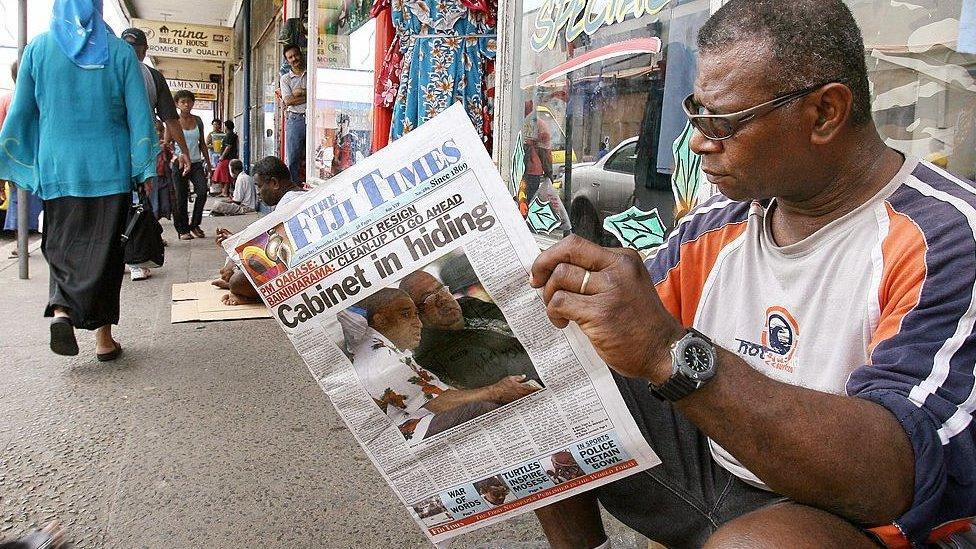Fiji media guide
- Published
This page is no longer being updated. It was last updated on 23 August 2023

Privately-owned TV and radio stations operate alongside outlets run by the state-owned Fiji Broadcasting Corporation.
Freedom House says that the repressive climate that followed the 2006 coup has eased since democratic elections were held.
Fiji has an active media sector, with several private television stations, radio stations, and newspapers. Opposition parties have accused the state of using its power to silence critics.
Reporters Without Borders (RSF) has praised the media's "liveliness and spirit of resistance". But is says journalists are restricted by a "draconian" media industry decree which became law in 2018. Reporters who violate its "vaguely-worded" rules risk imprisonment, and the risk of fines and jail time encourages self-censorship.
Radio is a key source of information, particularly on the outer islands. There are public and privately-owned stations. The BBC (88.2 FM), Radio Australia and Radio France Internationale are available via local relays.
There were 688,000 internet users by July 2022, comprising 76% of the population (Internetworldstats.com).
Press
The Fiji Times, external - private, main English-language daily
Fiji Village, external - private news and radio site, operates several networks in English, Fijian and Hindi
Fiji Sun, external - private
The Jet, external - English-language monthly
Television
Fiji TV, external - private
Mai TV, external - private
FBC TV, external - state-owned
Radio
FBC, external - state-owned commercial company, operates Fijian-language Radio Fiji One, Hindi-language Radio Fiji Two, music-based Bula FM, Hindi station Mirchi FM, music-based 2day FM and Radio Fiji Gold
Fiji Village, external - private news and radio site, operates several networks in English, Fijian and Hindi